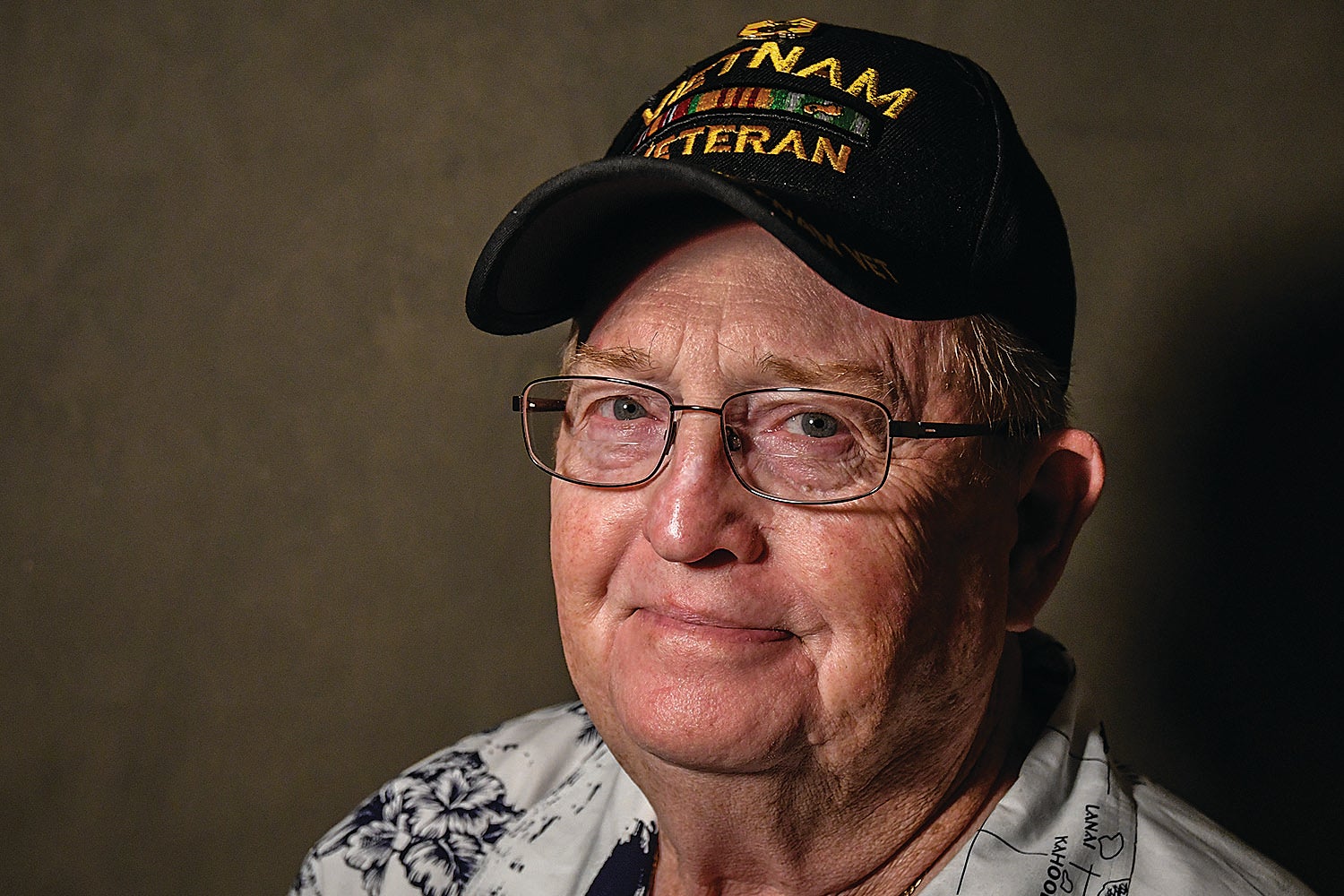The second inaugural address of President Abraham Lincoln
Published 2:30 pm Tuesday, March 1, 2022

- Gene Hays, in Oxford, Miss. on Monday, August 14, 2017. (Photo/Bruce Newman)
Saturday, March 4, 1865, started out dark, damp, and disagreeable. Most streets in Washington remained unpaved, and two days of incessant rain created a record amount of mud.
“The streets and sidewalks were encrusted with from two to ten inches of muddy paste, through which men and horses plodded wearily,” wrote a local reporter.
Tens of thousands of visitors streamed into town for the reinauguration of President Abraham Lincoln, filling “every available room, bed, nook, and corner,” only to reckon with the mud and one another. But the intrepid crowd would be rewarded with a ceremony of historic proportions and the finest speech this president ever produced. The festivities started with the traditional procession down Pennsylvania Avenue from the White House area to the Capitol.
When the rain let up an exuberant crowd enjoyed the parade. “The sidewalks are jammed with people, and every window and house-top were filled with ladies and gentlemen, who are waving handkerchiefs and hats with great enthusiasm,” a reporter wrote. They saw the usual bands, floats, and marchers, and for the first time, “companies of colored troops, a lodge of colored Odd-Fellows in regalia.” The crowd cheered the President’s carriage, but he was not in it. As a reporter wryly remarked, “it was a play of Hamlet with Hamlet left out. The President was already at the Capitol, busily engaged in signing bills.” Mrs. Lincoln was a passenger, however.
The famous ex-slave Frederick Douglass also was misled by the carriage, but unlike most others, he correctly sensed potential danger.
“I felt then that there was murder in the air, and I kept close to his carriage on the way to the Capitol, for I felt that I might see him fall that day. It was a vague presentiment.”
As events later revealed, Lincoln’s assassin was in the inaugural throng and boasted of being within shooting range; six weeks later he killed Lincoln in a Washington theatre. Northern reporters on the scene could not help contrasting Lincoln’s two inaugurations.
One noted that four years earlier “the weather was dry, and tornadoes of dust swept through the streets,” and the atmosphere was foreboding and warlike.
“The city was filled with rebels who proclaimed their sentiments boldly in the streets, and hinted violence to the Executive.”
Another commented, “To-day the scene was totally changed. The city was joyous and confidant …The fears of the olden times were forgotten. Happy faces and cheerful greetings were everywhere observed …The solemnity of 1861 had given place to the joyousness of 1865.”
The nightmare of civil war was nearly over, the federal union had been maintained, the Thirteenth Amendment abolishing slavery had passed Congress, and the Capitol dome was complete, topped by a statue of Freedom. With peace a distinct prospect, the future looked bright.
When President Lincoln and invited dignitaries walked onto the huge platform, they saw a crowd of between 30,000 and 40,000 people.
A witness said, “The grandeur of the spectacle before me was indescribable.” He marveled, “Thousands of colored folk, heretofore excluded from such reunions, were mingled for the first time with the white spectators.”
On Sunday, in a sermon at the Capitol attended by the Lincolns, Methodist Bishop Matthew Simpson alluded to the sunburst and said in the same sudden manner, peace would “burst upon the nation and dispel the clouds of war.”
Other inaugural observers noticed the remarkable appearance of a star/planet in the mid-day sky. A mounted member of Lincoln’s bodyguard watched nearby as the president read his speech in a strong, clear voice to the vast, expectant crowd.
“They seemed to hang on his words as though they were meat and drink,” he recalled. “And when he concluded the last paragraph, beginning, ‘With malice toward none, with charity for all,’ which fell like a benediction from heaven, the shout of the people seemed to rise to the very sky.”
Lincoln then took the oath of office from Supreme Court Justice Salmon P. Chase. Lincoln nominated him after Roger Taney’s death the previous year, adding yet another twist to the inaugural drama, for Taney wrote the pro-slavery opinion in the Dred Scott case, only to be replaced by Chase, the abolitionist. Chase marked the place in the Bible that Lincoln kissed, which was Isaiah 5:27-28.
Throughout the Northern states and Europe, Lincoln’s speech was widely praised, although the New York Herald dismissed it as a “little speech of ‘glittering generalities’.” However, another writer from the same newspaper said Lincoln looked “unusually handsome” and while speaking “his face glowed with enthusiasm, and he evidently felt every word that he uttered.” A New York Times writer praised the speech for “its calmness, its modesty, its reserve” and declared, “We have a President who will be faithful to the end.” At a White House reception on inauguration day Lincoln told Frederick Douglass he had seen him in the Capitol crowd and pressed him for his opinion of the speech. His response aptly summarized the theologically rich speech: “Mr. Lincoln, it was a sacred effort.”
At the end of his speech, Lincoln closed with the most memorable words by any president: “With malice toward none; with charity for all; with firmness in the right, as God gives us to see the right, let us strive on to finish the work we are in; to bind up the nation’s wounds; to care for him who shall have borne the battle, and for his widow, and his orphan—to do all which may achieve and cherish a just, and a lasting peace, among ourselves, and with all nations.” Sources: the Gilder Lehrman Collection and public domain. Gene Hays is an author and historian with several books on Amazon.com.




